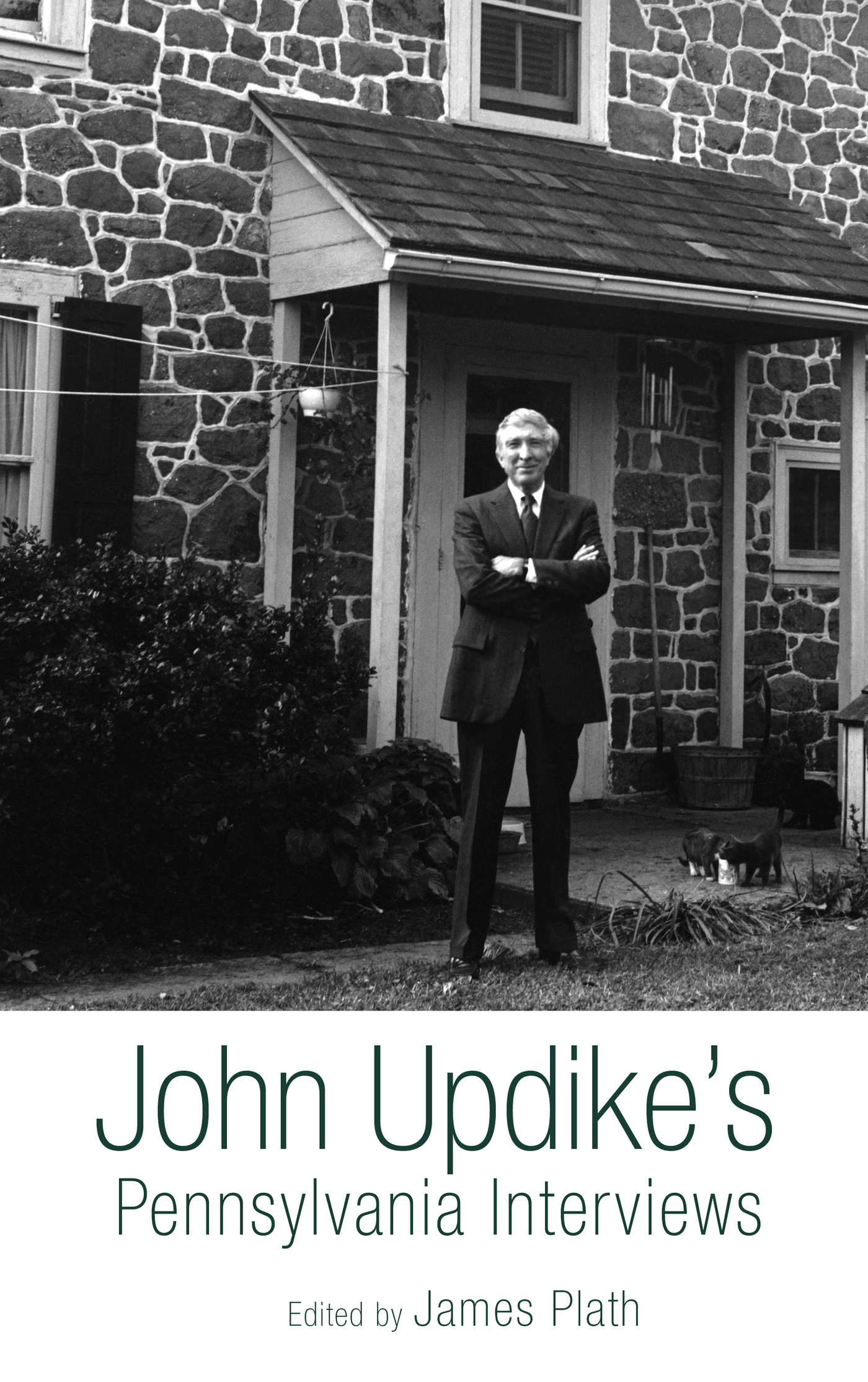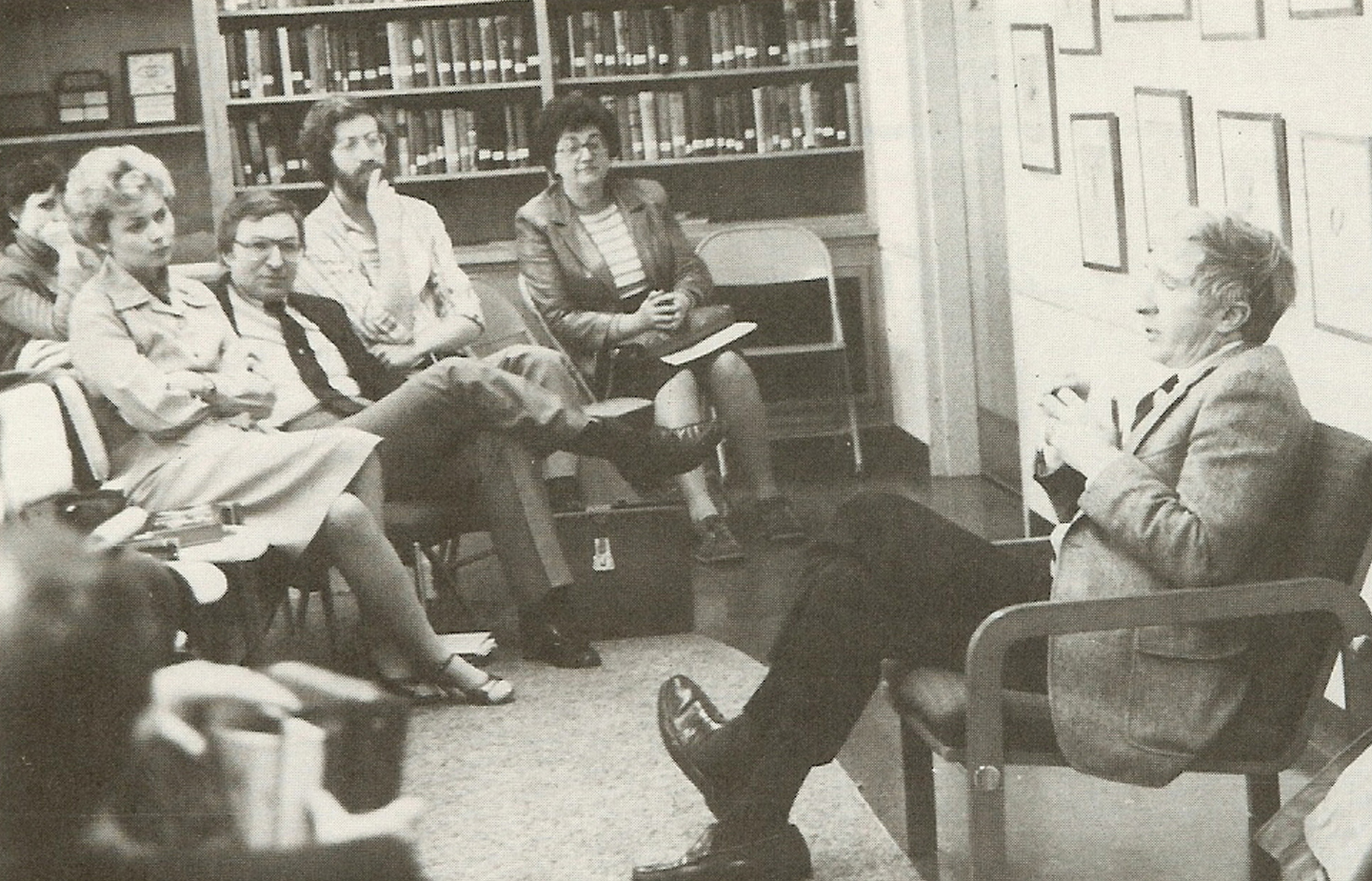
From The Benigna, yearbook of Moravian College, Bethlehem, Pa., 1982.
Courtesy of Moravian College.
John Updikes
Pennsylvania Interviews
John Updikes
Pennsylvania Interviews
Edited by James Plath
LEHIGH UNIVERSITY PRESS
Bethlehem
Published by Lehigh University Press
Copublished by The Rowman & Littlefield Publishing Group, Inc.
4501 Forbes Boulevard, Suite 200, Lanham, Maryland 20706
www.rowman.com
Unit A, Whitacre Mews, 26-34 Stannary Street, London SE11 4AB
Copyright 2016 by James Plath
All rights reserved. No part of this book may be reproduced in any form or by any electronic or mechanical means, including information storage and retrieval systems, without written permission from the publisher, except by a reviewer who may quote passages in a review.
British Library Cataloguing in Publication Information Available
Library of Congress Cataloging-in-Publication Data Available
Names: Plath, James, editor.
Title: Native Son: John Updikes Pennsylvania Interviews / Edited by James Plath.
Description: Bethlehem [Pennsylvania]: Lehigh University Press; Lanham, Maryland: Copublished by The Rowman & Littlefield Publishing Group, Inc., 2016. | Includes bibliographical references and index.
Identifiers: LCCN 2016026936 (print) | LCCN 2016037186 (ebook)
ISBN 978-1-61146-105-3 (cloth: alk. paper)
ISBN 978-1-61146-106-0 (Electronic)
Subjects: LCSH: Updike, John--Homes and haunts--Pennsylvania. | Updike, John--Friends and associates--Pennsylvania. | Updike, John--Interviews. | Authors, American--20th century--Interviews. | Pennsylvania--In literature.
Classification: LCC PS3571.P4 Z784 2016 (print) | LCC PS3571.P4 (ebook) | DDC 813/.54--dc23 LC record available at https://lccn.loc.gov/2016026936.
 TM The paper used in this publication meets the minimum requirements of American National Standard for Information Sciences Permanence of Paper for Printed Library Materials, ANSI/NISO Z39.48-1992.
TM The paper used in this publication meets the minimum requirements of American National Standard for Information Sciences Permanence of Paper for Printed Library Materials, ANSI/NISO Z39.48-1992.
Printed in the United States of America
Acknowledgments
To gather these interviews and articles, I traveled across Berks County and would not have been able to research this book without the assistance of an Artistic and Scholarly Development Grant from Illinois Wesleyan University. Likewise, I would not have been able to pay for reprint permissions without additional support from IWU Provost Jonathan Green, whom I also wish to thank.
Regarding permissions, I would like to thank Richard Bentley and Ralph Montagu (BBC), Harry Dietz (Reading Eagle), William Ecenbarger, Linda Parker (Pittsburgh Post-Gazette), Gregory Petersen (WPSU-Penn State Public Media), Sanford Pinsker and Leigh Anne Couch (The Sewanee Review), Susan S. Quatresols and Terry Gross (Fresh Air), Jessica Stremmel (The YGS Group), Doug Weaver and John Mark Eberhart (Kansas City Star), and Jennifer Weaver (LNP Media Group) for reducing or waiving their fees.
Special thanks go to Richard Subber and David Schappert (The Comenian and Reeves Library, Moravian College) for providing me with photos, articles, permissions, and a copy of the public program featured here; to Richard Subber and Moravian College for permission to reprint a page-82 photo from the 1982 Benigna; to Charlie Jamison (Special Collections Librarian, Ursinus College Library), who also provided me with a copy of the public program the college hosted; to Dorothy Hoerr for digging out her original interview and adding unpublished outtakes; and most especially to David Updike for providing the cover photo of his father, which was taken in October of 1989 on the day of his mothers funeral. Please note the feeding cats, the subjects of various Pennsylvania stories: my grandmothers, fathers, and even my own, called Indian Summer.... It is probably the last [photo] taken in front of the sandstone farmhouse, with him as the owner.
I also appreciate the kindness of those who helped me with my research: Jackie Hirneisen Kendall, Nancy Nelson (wife of Updike classmate Barry Nelson), Dave Silcox, Mary Weatherall, Joan Venne Youngerman, Myrtle Council, and Reading Public Library staffers Lorraine Barry, Eileen Barrett, and Nathaniel A. Thomas.
Finally, I want to thank Scott Paul Gordon, Kate Crassons, Tommy J. Moore (Lehigh University Press), Brooke Bures, and Tracy Galloway (Rowman & Littlefield) for their patience and help in bringing this project to a close, after four and a half long years, and to my two anonymous readers, whose suggestions helped make the book better.
Introduction
John Updike and Pennsylvania
Some writers like Faulkner have managed to stay in the same turf and write about it, but most of us do need to get away somewhere where they dont have your number, where they didnt know your grandfather and they dont have you slotted too comfortably in the local society. You need to make yourself anew, and one way, the easiest way of doing that is to move far enough away.
Thats what John Updike told an audience at Ursinus College in Collegeville, Pa., when he read from both his work and his mothers at a public program titled A Writing Mother and Son on December 3, 1991. I still feel like a Pennsylvanian, said Updike, who had been living in the Boston area since his college days at Harvard. After his mothers death in 1989, Updike had donated all of her manuscripts and letters to Ursinus, explaining to the always-attentive press, I thought it might be of interest to the college where she studied and met my father, Wesley R. Updike 23 (Gordon).
Linda Grace Hoyer Updike, who started college as a fifteen year old and earned a Masters degree from Cornell, told Berks County Living in 2008 that she wrote despite opposition from her father, who mistrusted writers and thought it was disgraceful, and husband Wesley, who felt embarrassed by her writing (Toussaint 31). In a companion article in that same issue, John Updike was quoted as saying that as a young child he would sit there and watch her as she wrote. Clearly she was making a heroic effort, and the things would go off in brown envelopes to New York or Philadelphia even, which had the [Saturday Evening] Post in those years, and they would come back. And so the notion of it being something that was worth trying and could, indeed, be done with a little postage and effort stuck in my head (Baver 30). His mothers literary papers had been the center of her life, Updike said (Safe in the Bosom of Ursinus 10), and any college would have been happy to receive Mrs. Updikes paperswhich included one hundred ninety-five short stories, two published novels, twenty-four unpublished novels, and reams of letters and journalsespecially considering their relationship to her famous son. But its worth noting that sentiment dictated where they went (or rather, returned), just as it did two years earlier when, the day after his mothers death, Updike contacted the Reading Public Library about donating the complete collection of his signed books that he had sent his parents over the years, because his mother had expressed a desire that these books remain in Berks County. Updike hand-delivered them, telling a reporter for the

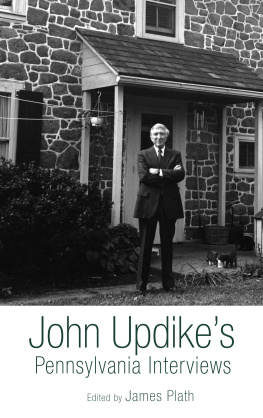
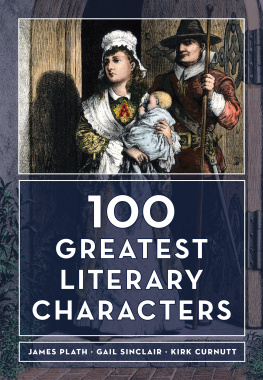


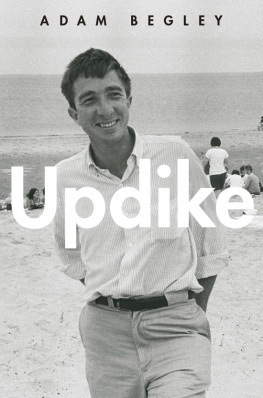
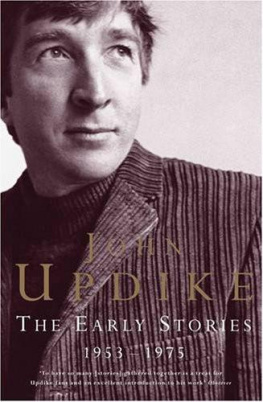
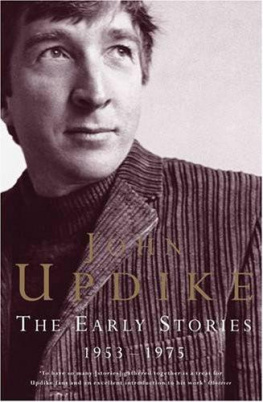
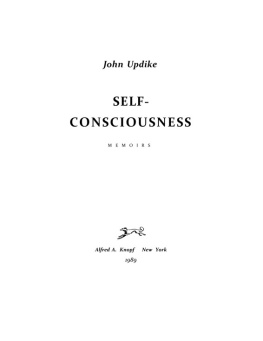
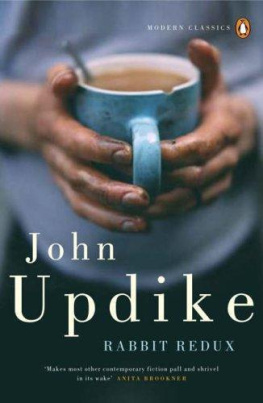


 TM The paper used in this publication meets the minimum requirements of American National Standard for Information Sciences Permanence of Paper for Printed Library Materials, ANSI/NISO Z39.48-1992.
TM The paper used in this publication meets the minimum requirements of American National Standard for Information Sciences Permanence of Paper for Printed Library Materials, ANSI/NISO Z39.48-1992.